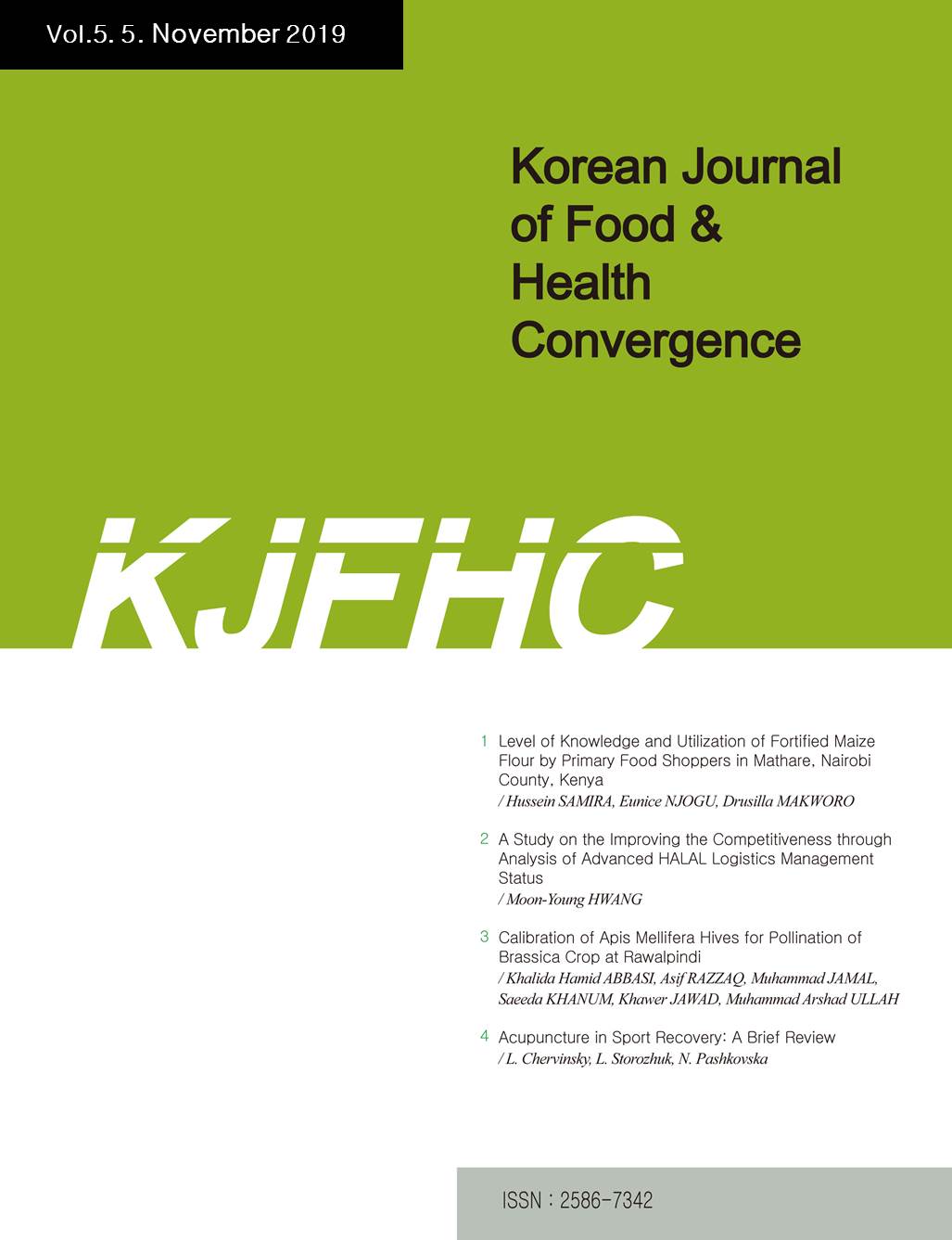- 권한신청
- E-ISSN2586-7342
- KCI
Effects of basil leaf (ocimum basilicum) marination on sensory attributes of spent layer meat
Ibrahim, N.T. (Department of Animal Science, Usmanu Danfodyo University Sokoto)
Zaharadeen, I.M. (Department of Agricultural Economics, Usmanu Danfodyo University Sokoto)
Abstract
This research was conducted at agric physical lab, Department of Animal science, Faculty of Agriculture to determines the effects of marinating spent layer meat with basil leaf paste on drip loss and sensory attributes under different post mortem conditions. In the light of this, the poultry industry is obliged to continuously grow for a steady supply of quality poultry meat. Marinating the spent layer hen's meat with fresh basil leaves (Ocimum basilicum) in addition to subjecting the meat to 0, 6, 12, and at 24 hours post mortem aging before cooking increased it's organoleptic attributes which was readily acceptable to consumers. Marination of meat with herbs or spices like basil leaves paste had enhanced consumer's preference for taste, texture aroma, colour and overall acceptance. Marination improved consumer acceptance of spent layer meat irrespective of parts and post mortem aging. However, the majority of the respondents preferred meat marinated and subjected to 12 hours of post mortem aging. It is recommended that more quantity of marinate should be added further studies should in order to determine more effect of fresh basil leaves rough paste. And more hours of postmortem aging should be increased in order to determine more effect of fresh basil leaves rough paste marinate.
- keywords
- Meat, Leaf Paste, Marinating spent layer, Ocinum basilicum
- 다운로드 수
- 조회수
- 0KCI 피인용수
- 0WOS 피인용수

